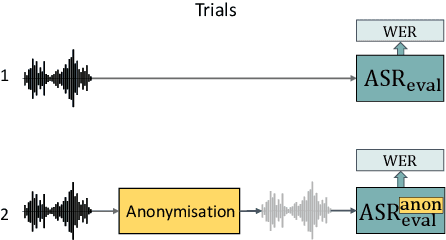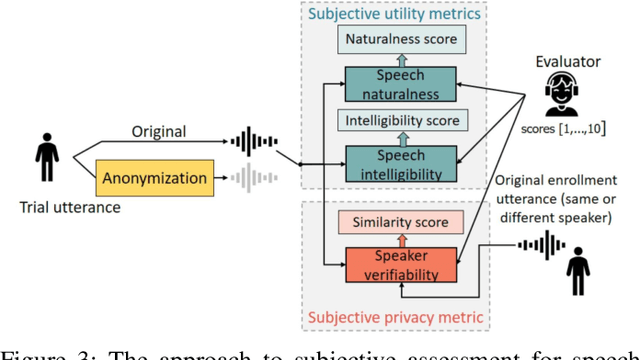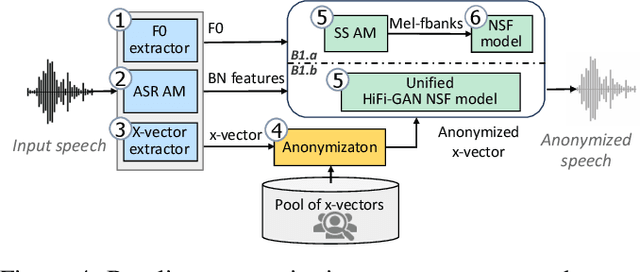The VoicePrivacy 2022 Challenge: Progress and Perspectives in Voice Anonymisation
Paper and Code
Jul 16, 2024



The VoicePrivacy Challenge promotes the development of voice anonymisation solutions for speech technology. In this paper we present a systematic overview and analysis of the second edition held in 2022. We describe the voice anonymisation task and datasets used for system development and evaluation, present the different attack models used for evaluation, and the associated objective and subjective metrics. We describe three anonymisation baselines, provide a summary description of the anonymisation systems developed by challenge participants, and report objective and subjective evaluation results for all. In addition, we describe post-evaluation analyses and a summary of related work reported in the open literature. Results show that solutions based on voice conversion better preserve utility, that an alternative which combines automatic speech recognition with synthesis achieves greater privacy, and that a privacy-utility trade-off remains inherent to current anonymisation solutions. Finally, we present our ideas and priorities for future VoicePrivacy Challenge editions.
 Add to Chrome
Add to Chrome Add to Firefox
Add to Firefox Add to Edge
Add to Edge